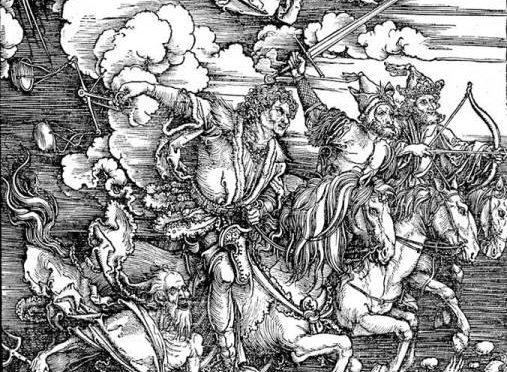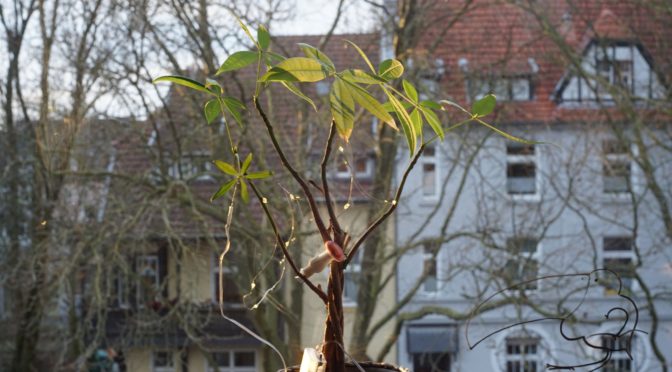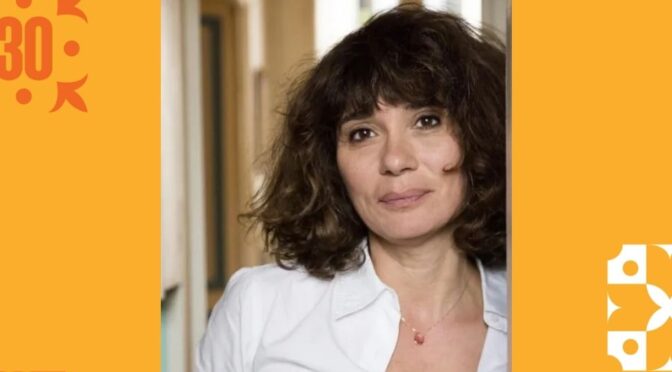
Workshop
Datum: 20. a 21. května 2019
Místo: Akademické konferenční centrum (Husova 4a, Praha 1) a Filozofická fakulta UK, sál 104 (nám. Jana Palacha 2, Praha 1)
Organizátor: Martin Pjecha (CEU/CEFRES)
Organizován ve spolupráci s: CEFRES, Centrum medievistických studií (CMS), Central European University (CEU)
Jazyk: angličtina
Hlavní hosté
- Phillip Haberkern (Boston University) : When did Christians Become Revolutionary? A Reflection on Hannah Arendt
FF UK, salle 104 (náměstí Jana Palacha 2, Prague 1)
- Matthias Riedl (Central European University, Budapešť) : Apocalyptic Platonism: The Thought of Thomas Müntzer
CFP workshopu můžete vidět zde.
20th May 2019
10:00 – Introductory comments
10:30-12:00 – Panel 1: Urban and noble rebellion in the 17th century
- Rik Sowden (University of Birmingham): Religion and rebellion in Nottingham during the British Civil wars – (discussant: Vladimír Urbánek)
- Márton Zászkaliczky (Hungarian Academy of Sciences, Institute for Literary Studies, Budapest): Calvinist Political Theology in the Bocskai Rebellion (1604-1606) – (discussant: Vladimír Urbánek)
12:00-13:00 – Lunch
13:00-14:20 – Panel 2: 20th century interpretations
- Behrang Pourhosseini (University Paris 8): From Christian Victimary Politics to Shi’ite Messianism : A Debate around the Iranian Revolution – (discussant: Thomas C. Mercier)
- Giacomo Maria Arrigo (KU Leuwen/University of Calabria): Gnosticism and Revolution: Towards an Explanatory Pattern – (discussant: Matthias Riedl)
14:20-14:40 – Coffee break
14:40-16:00 – Panel 3: Imperial and Soviet Russia
- Anastasia Papushina (CEU, Budapest): Martyrs and heroes: revisiting religious patterns in revolutionary times – (discussant: Hanuš Nykl)
- Daniel García Augusto Porras (Universitat Ramon Llull (Barcelona)/Universidad Pontificia Comillas ): Revolution as political religion in Russia: Dostoevsky’s Grand Inquisitor and its interpreters in Russian religious thought – (discussant: Hanuš Nykl)
16:00-16:20 – Coffee break
16:30-18:00 – Keynote 1
- Matthias Riedl (CEU, Budapest): Apocalyptic Platonism: The Thought of Thomas Müntzer
21st May 2019
10:00-11:20 – Panel 4: The French Revolution
- Mathias Sonnleithner (MLU, Halle-Wittenberg) : Robespierre’s Belief to Be God’s Chosen – A Key Element of the Political Theology of the Terror – (discussant: Jakub Štofaník)
- Amirpash Tavakkoli (EHESS, Paris) : French revolution, a Christian reading – (discussant: Jakub Štofaník)
11:20-11:50 – coffee break
11:50-13:10 – Panel 5: Violence and bliss in medieval Bohemia
- Pavlína Cermanová (CMS, Prague): The Theology of Hussite Innocence – (discussant: Phillip Haberkern)
- Martin Pjecha (CEU, Budapest/CEFRES, Prague): “Cosmic” revolution in radical Hussitism – (discussant: Phillip Haberkern)
13:10-14:30 – Lunch
14:30-16:30 – Panel 6: Intellectual transfers and comparisons in early modernity
- Sam Gilchrist Hall (Károli Gáspár University of the Reformed Church in Hungary, Budapest): “But I do not doubt the people”: Thomas Müntzer and King Lear – (discussant: Matthias Riedl)
- Luke Collison (Kingston University London): Hobbes and ‘Religion’ on the Threshold of Modernity – (discussant: Matthias Riedl)
- Benjamin Heidenreich (University of Würzburg): Huldrich Zwingli´s influence on the “Peasants´ War” of 1525 – (discussant: Phillip Haberkern)
16:30-16:50 – Coffee break
17:30-19:00 – Keynote 2
- Phillip Haberkern (Boston University): When did Christians Become Revolutionary? A Reflection on Hannah Arendt
FF UK, salle 104 (náměstí Jana Palacha 2, Prague 1)
19:00 – Closing remarks

Home beyond species. More-than-human dwelling in the age of crises
Launch of the 2022–2024 Tandem project, supported by CEFRES, CNRS and the Czech Academy of Sciences
When: Tuesday 19 April 2022, 1–3 pm
Where: CEFRES and online (to register please contact claire(@)cefres.cz)
Language: English
Convenors (2022–2024 Tandem team):
Petr Gibas (Institute of Sociology, Czech Academy of Sciences / CEFRES),
Chloé Mondémé (Triangle CNRS / CEFRES)
With a key-note speech by Birgit Müller (EHESS):
Toxic Worlds and the Power of Denial
Abstract of the key-note
Bureaucrats and politicians have long turned a blind eye to the accumulation of small toxic doses in soils, groundwater, oceans and in bodies. Toxic waste from industrial processes have been tolerated as a price to pay for living “progress” and “growth. Anthropologists are interested in the capacity of humans to render invisible and deny the toxic evidence, and in the stubborn refusal to observe and understand the real material consequences of our economic and technical system. Denial makes the invisible traces and effects of the catastrophe disappear. A powerful weapon, it allows to normalize a situation in a way that reproduces rational logic while producing a deep abandonment to the evil of non-reflection. To speak of pollution is to recognize its immense power to render a hitherto familiar space uninhabitable. Pokračování textu Tandem Kick-off: Home beyond species →

Kdy: 27.-29. března 2025
Kde: ENS de Lyon, Site Descartes
Jazyk: francouzština, angličtina
Organizační rada:
- Raphaëlle Brin (ENS de Lyon)
- Zoé Carle (Université Paris 8)
- Adrien Chassain (Université Paris 8)
- Sylvia Chassaing (Inalco)
- Hélène Martinelli (CEFRES, Prague)
- Giedrė Šabasevičiūtė (Académie tchèque des sciences, Prague)

Zjistěte více o dojemnem románu o osudu obyvatel jednoho pařížského domu ve 40. letech 20. století.
Kdy: 17. května 2025, 16:00
Kde: Sál Milana Kundery, Výstaviště Praha Holešovice, Křižíkovy pavilony
Přidejte se k nám na Knižním veletrhu v sobotu 17. května v 16 hodin na setkání se spisovatelkou a režisérkou Ruth Zylbermanovou, která nám představí svůj román Autobiografie jednoho pařížského domu (209 rue Saint-Maur, Paris Xe : Autobiographie d’un immeuble, Points, 2021), jehož český překlad vydalo nakladatelství Maraton v roce 2024. Ve vyprávění Ruth Zylbermanové ožívají příběhy zmizelých i navrátilců, dětí i dospělých, kolaborantů i odbojářů, zamilovaných dívek i žen se špatnou pověstí, konkrétních lidí různých národností, jejichž životy svedla dohromady jedna pařížská adresa. Po diskusi bude následovat autogramiáda s autorkou na stánku Francie.
Ruth Zylbermanová, francouzská filmařka a spisovatelka, natočila řadu dokumentárních snímků a v roce 2015 vydala svůj první román La Direction de l’absent (Směr nepřítomných). V její tvorbě se zřetelně projevuje vztah ke středoevropským dějinám: dokumentární snímek Dissidents, les artisans de la liberté (2009) věnovala mj. Václavu Havlovi, Le procès – Prague 1952 (2021) pak trojici odsouzených: Rudolfu Slánskému, Arturu Londonovi a Rudolfu Margoliovi. V roce 2018 natočila dokument Les Enfants du 209 rue Saint-Maur, Paris Xe (Děti z ulice Saint-Maur 209, Paříž, 10. obvod), který posloužil jako předloha románu z roku 2020. Snímek i kniha si získaly značnou přízeň odborné i čtenářské obce.
Šesté setkání epistemologického semináře organizovaného CEFRESem a Institutem mezinárodních studií FSV UK veden
Ekaterina Zheltova (IMS FSV UK / CEFRES)
Pavel Baloun (FHS UK / CEFRES)
Téma: Suverenita
Místo: knihovna CEFRESu, Na Florenci 3, 110 00 Prague 1
Čas: středa 6. března 2019, od 16:30
Jazyk: angličtina
Text:
- Humphrey: „Sovereignty“, A Companion to the Anthropology of Politics (ed. David Nugent, Joan Vincent), Malden-Oxford-Victoria, Blackwell, 2007, 418–436.
- Jennifer Illuzzi, “Negotiating the ‘state of exception’: Gypsies´ encounter with the judiciery in Germany and Italy, 1860-1914”, Social History 4/2010, p. 418-438.

Přednášku v rámci semináře o soudobých dějinách Židů organizovaného Ústavem pro soudobé dějiny AV ČR ve spolupráci s Masarykovým ústavem přednese Marcos Silber (Haifa Univerzita)
Místo: knihovna CEFRESu, Na Florenci 3, 110 00 Praha 1
Čas: 17:30-19:00
Jazyk: angličtina
Abstrakt (EN):
March 1968 was a short but important period in recent Polish history. That year, it seemed, almost the whole world was experiencing a cultural revolution provoked by the youth. Unlike most of the historical research on Poland in March 1968, which has tended to focus on political power struggles and rising antisemitism, this paper explores connections between post-war Polish-Jewish youth subculture, a group sidelined because of its ethnicity and age, and the anti-Jewish campaign of March 1968 which led to the emigration of thousands of Polish Jews.





